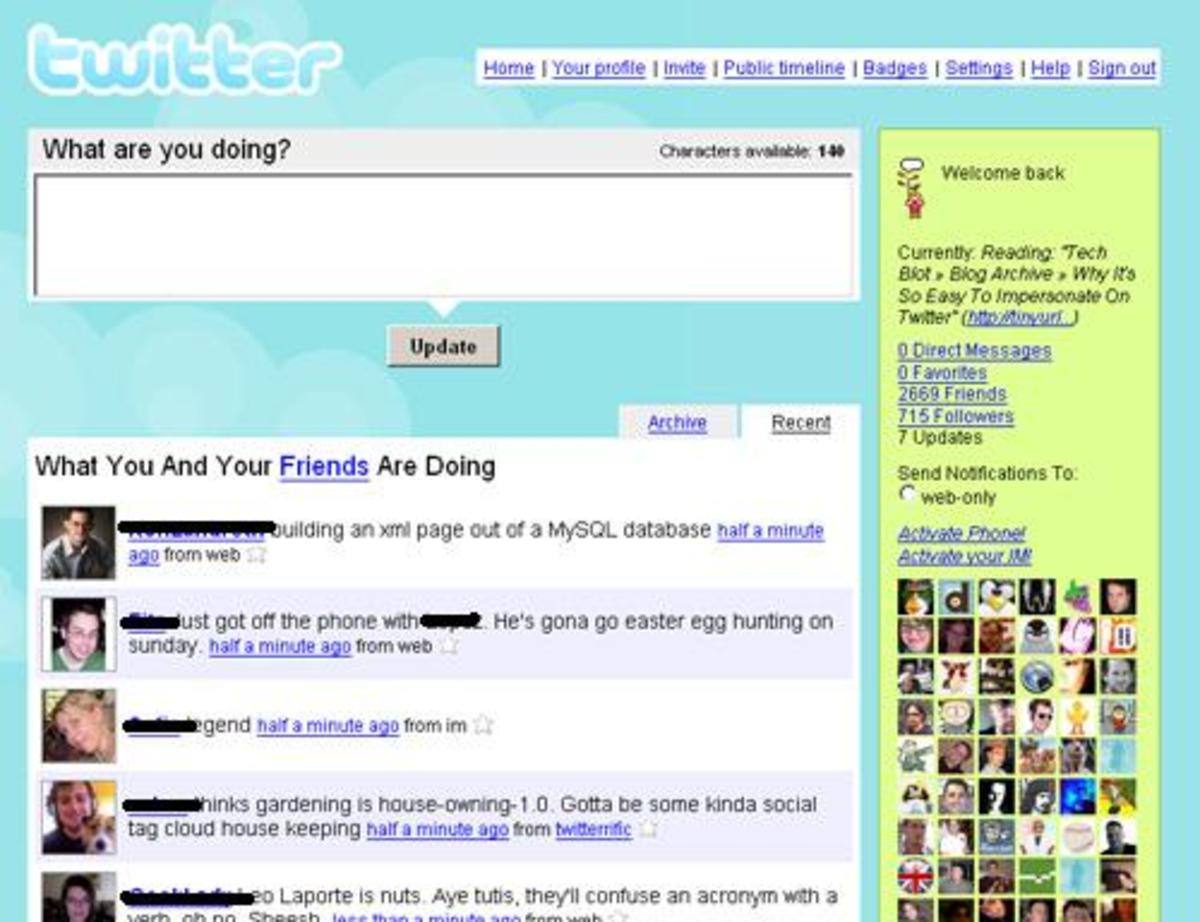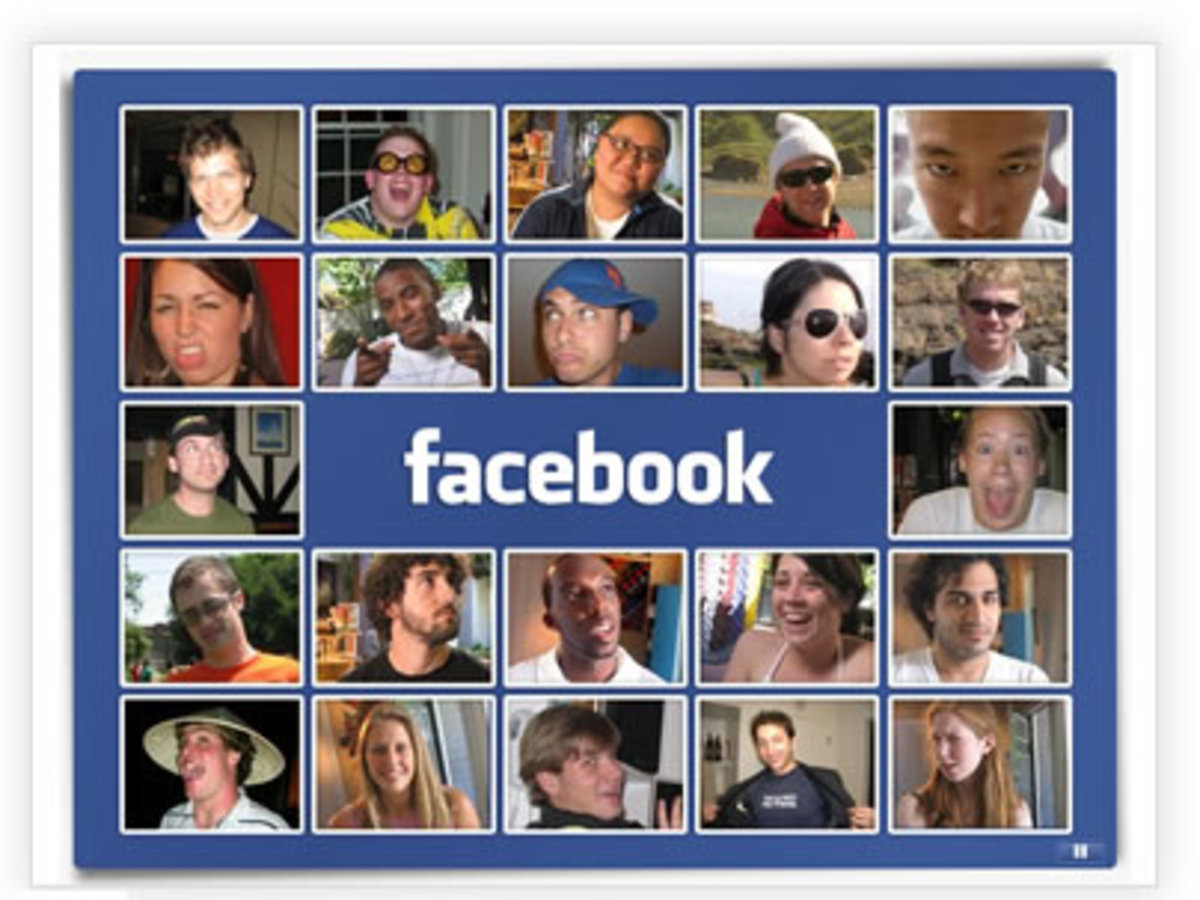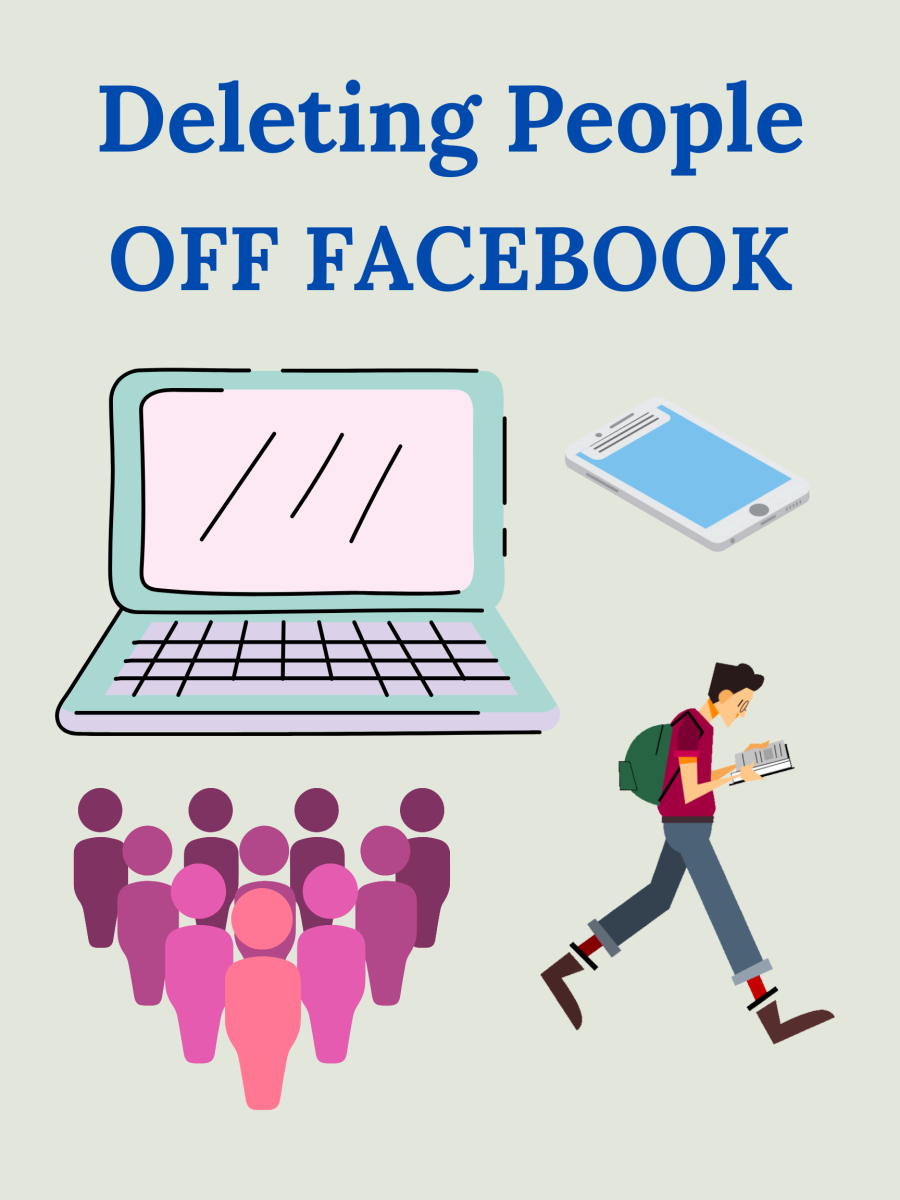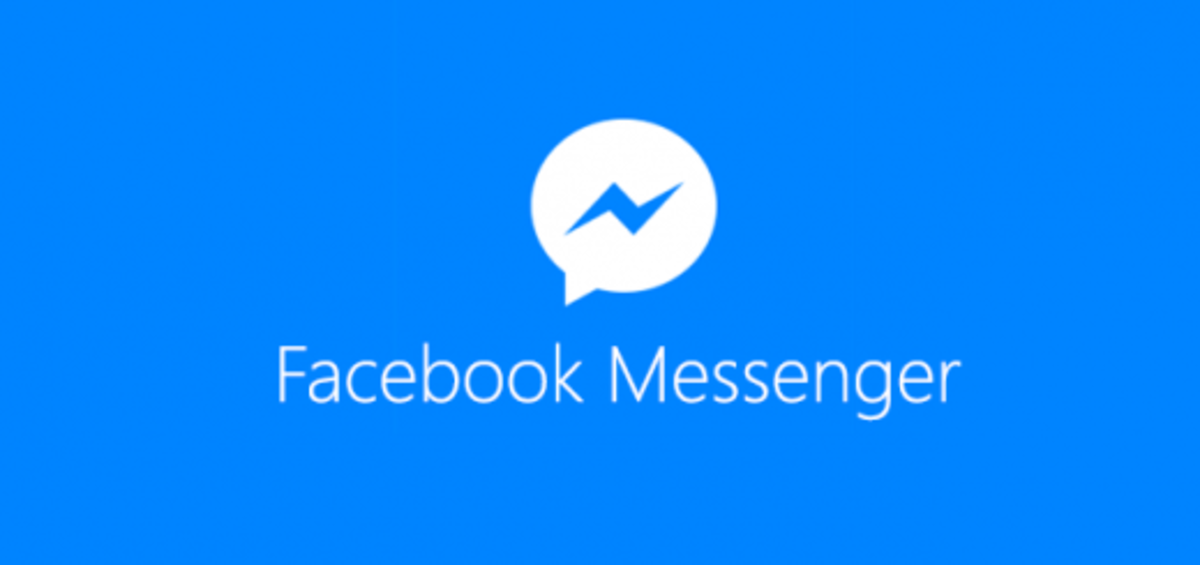Social Media Privacy Concerns: Tips On How To Protect Your Privacy
The Conflict: How To Stay Connected While Still Maintaining Privacy
In today's world of social networking, it is hard to strike a balance between staying connected and maintaining a measure of healthy privacy.
Social networking is almost like being back in high school. You probably knew a lot of people, but you were only close to a smaller group of intimate friends. Many more you may have recognized but not knew personally at all. Perhaps you knew them as friends of this one or that one. Social networking is much the same. A person generally accumulates many contacts. Of these contacts, you may have x amount that you personally know and consider close friends or family. Beyond that, there may be many acquaintances you have, perhaps work mates, or people you've met over the years. Beyond that level, you may have contacts that you don't personally know, but are friends of some of your friends. There may even be some contacts that you don't know at all or have never met, but perhaps they are contacts through a similar interest or group you have joined.
Just as you have many levels of contacts, you also have many levels of privacy. What you tell a best friend you most likely would not want a mere acquaintance knowing. Similarly, it is very important with all these social networking sites that you need to decide upon the level of privacy when you share certain information. Social networking can be a great tool for people to keep in touch, but it can also be a very dangerous tool in the hands of the wrong person.
We have all heard stories of victims of identity thieves, cyber and real world crimes, and even cyber bullying by people who prey on people using such sites. Even if we never encounter such extreme behavior, it is certainly in our best interest to always make sure that the privacy of ourselves and our family never gets into the wrong hands.
So how do we strike that delicate balance, staying connected and having fun, while still maintaining our privacy? With some simple tips, we can do just that.

The Golden Rule Of Social Networking (That Is Almost Never Followed)
Remember when you were back in high school? What was the one golden rule of high school? If you don't want to get caught, don't ever leave a paper trail. Never, ever write things down or it can, and will be traced back to you.
Well, in today's digital world that translates into one thing. Because mistakes are made, and accidents will and do occur, the one fail proof rule of thumb is to never post anything (even if you are using privacy tools) that you don't want the whole world to see.
How many times do we see prospective or current employers using the information on social networking sites to make decisions about current or prospective employees? How many times have we seen people losing jobs over pictures that were posted? If it is posted, it can, and will be seen.
It's this simple: Just don't post it. If you don't post it, nothing can happen. Ahh, but is it really that simple? Alas, this is probably one rule that is the least adhered to.
Privacy Tools
To their merit, most social networking sites do offer more security and privacy options as concerns have grown and privacy has become an issue. Some companies offer extensive tools to help in this regard. However, while some tools are easy to navigate and straightforward, others can be complicated and confusing, especially to ones using the site for the first time, or people who are not so media-savvy.
The purpose of this article is to give you the information you need in a concise manner so that you can use these tools well.
Facebook Addict
Social Network Giant: FACEBOOK
Did you know that Facebook surpassed the 1 billion member mark in late 2012? Because of its immensity, it only stands to reason that there are major privacy concerns when it comes to this social networking giant. The problem with Facebook is that posts can easily get passed to other people (friends of friends), and then they can repost these posts, and potentially the whole world could see.
How do we avoid this?
Although it has had many privacy pitfalls over the years, Facebook has enabled its users with much tighter controls over the years. Now, you can find all their controls easily in one place. At the top right corner of the page, you will see a 'gear' icon. If you click this, all the privacy controls will come up in one place. Once you open these settings, you will see a column on the left. Click the Security tab and use secure browsing whenever possible. You can click the Privacy tab to control who can see what you post and for what amount of time, who can find you on Facebook, and how, and also how visible your Facebook account will be on search engines.
You can also conveniently access these privacy controls every time you make a post on Facebook. This means, in effect, you can control the privacy on every post you make on your Facebook timeline. Take advantage of this feature.
This is a very important feature, because not only can you control the privacy of who sees individual posts, but you can also control how you are "tagged" (or identified) in photos, which can be a greater privacy risk. We mentioned that if everyone is allowed to see your posts, and someone can "tag" you, they can also repost your posts.
One of the greatest features is that you can actually limit interaction with certain people you so desire, but without completely blocking them (unless you want to). This is a great feature for those you may be acquainted with, but really don't know. You can put these people on a 'restricted' list and control exactly what they see: most updates, status updates, life events, and so on
Another nice feature is that right beside the gear icon at the top right corner of the page, to the left, you will see a lock icon. This is a shortcut to see your privacy settings and give you some pointers and tips on exactly how to control your privacy.
You can even double check your settings by typing in the name of a friend or acquaintance (contact) at the top of the page and Facebook will let you see how your profile appears to them, or how it appears publicly in search engines.
All these features are very useful, but you must use them, in order for them to work.
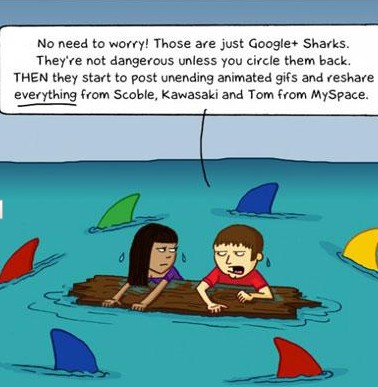
Google runs a close second to Facebook fans. Since Google offers its users significant visibility and because it is the top search engine, Google user profiles and posts are often displayed prominently in Google searches. This can present more of a challenge to restrict visibility.
Let's discuss what controls they give you. To access their privacy settings, click the drop down arrow next to the photo on your profile (or avatar) in the top right corner of the page and then click Privacy. You cannot hide your name and some of your profile information will always remain searchable on Google. Therefore, it is highly recommended that if you want to maintain your anonymity, Google is not the site to use for social networking.
What Google will allow you to have control over is what public profile information is visible and in your posts. You can choose if your posts are shared with specific "circles" or groups. As with other social networking sites, always be careful of what you post, since these posts can be reposted by others.
Now, it really seems ironic to talk about privacy when it comes to Twitter. But, since it is one of the biggest social sites out there, we'll bite.
New Twitter users may want to be careful with certain things though. For instance, when creating an account, unless you opt out of Twitter's personalization feature, Twitter will track the websites you visit where a Twitter function is present. This means that when you click on other Twitter users' pages, pages with Tweet buttons, or pages that use Twitter widgets, Twitter will use that information as a basis for suggesting Twitter feeds for you to follow.
In order to opt out of this feature, you will need to click on the gear icon in the top right corner of your Twitter page, click Settings tab, scroll down to Personalization, change the Tailor Twitter Based On My Recent Website Visits checkbox, scroll further down, and click the Save Changes button.
Twitter also displays promotional content from its ad partners by default. You can opt out of this on the Twitter Settings page. You can make your tweets private, visible only to Twitter users you designate, by checking the "Protect My Tweets" checkbox on the Settings page.
When All Is Said And Posted
Social networking sites can be useful for keeping in touch with family and friends. In this day and age, we are used to doing everything immediately. We make a post to Facebook, and share a picture around the world in less than 60 seconds. We can stay in touch with friends and family halfway around the world. We can learn about culture, language, and other things, all through social media.
In the right hands, it can be a very useful tool. We must always remember to be safe with social networking though. There are a lot of dangerous people out there, as well, and we want to maintain our privacy and safeguard our families.
There are simple tools that will help us to do so and I hope this article has proved useful in that regard. Above all, use caution at all times and always monitor the use of any information made public on the web by any family member. Inform your children of what is appropriate and not appropriate or wise to post. Set boundaries for your own individual families and maintain open lines of discussion in this regard. Make sure everyone understands what they can and cannot do. Work together to provide a safe environment where everyone can feel comfortable.
Have fun, but be safe while doing so.



